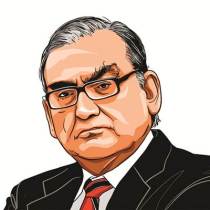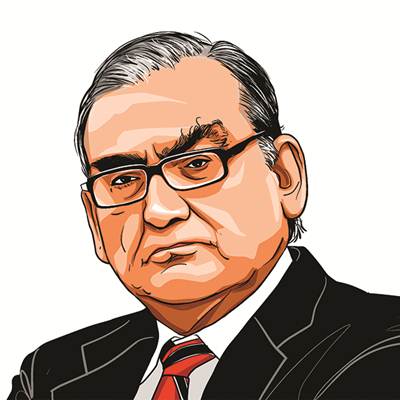Limits Of A Verdict
Decriminalising homosexuality may not remove the social stigma around it

It is doubtful if homosexuals will escape social strictures if they hug, embrace or kiss in public. (Express photo by Nirmal Harindran)
This refers to the article, ‘Freedom’s second coming’ (IE, September 7). The authors refer to the Supreme Court judgment in the Navtej Singh Johar vs Union of India case, which decriminalised gay sex among consenting adults. The authors note, “LGBT communities can walk tall and openly with their heads proud and held high as equal citizens with dignity, liberty and fraternity”. This, I believe, is a gross exaggeration. There is of, of course, no doubt that same sex partners will not be arrested for having consensual sex. But Indian society remains largely conservative and strongly disapproves of gay relationships. To say that the law does not prohibit something does not mean that society regards it as proper.
In the US, Anderson Cooper or Don Lemon of the CNN or Tim Cook, CEO of Apple, or James Fitterling, CEO of DowDuPont, can openly talk about their gay identity. But in India, homsexuality remains a matter of social stigma. A lot of Indians — even the educated ones — regard homosexuality as immoral, revolting and disgusting, law or no law.
In the Obergefell vs Hodges case in 2016, a 5-4 majority of the US Supreme Court directed the legalisation of gay marriages all over the country. That verdict was accepted because a large section of the liberal American society agreed with it. In India, however, it is extremely doubtful whether the Supreme Court will go that far.
As the Chief Justice of the Delhi High Court, I was once inclined to recommend the appointment of a certain lawyer as a judge. In my opinion, he was a deserving candidate. But I was dissuaded by senior colleagues who argued that the lawyer was in a live-in relationship. There is, of course, no legal bar to such a person being appointed as a judge. But public opinion in India disapproves of live-in relationships. India remains a conservative country in such matters.
There would have been no such problem in America, where the society is much more liberal.
Law and morality are different issues. Our legislators may frame laws or courts deliver judgments that are ahead of the moral values of a society. But it would be far fetched to expect that moral values can be changed because of court judgments. We can refer to an example from the US. The Fourteenth Amendment to the US Constitution in 1868 and the decision of the country’s Supreme Court in Brown vs Board of Education in 1954 mandated equality among all American citizens — much like Article 14 of the Indian Constitution. But even today, blacks are very often discriminated against in the US, as are Dalits in India.
Therefore, what two consenting people do within the confines of their bedrooms may not be the concern of the law but it is doubtful if homosexuals will escape social strictures if they hug, embrace or kiss in public.
The writer is a former judge, Supreme Court of India
For all the latest Opinion News, download Indian Express App
More From Markandey Katju
- Unfair HouseParliament condemned my statements on Gandhi and Bose without giving me a hearing, writes Markandey Katju...
- Keeping the statute quoThe judgments on the Representation of the People Act stray into legislative terrain..
- How not to be a journalistAs in the case of lawyers and doctors,a formal qualification must be prescribed for journalists..








































No hay comentarios:
Publicar un comentario